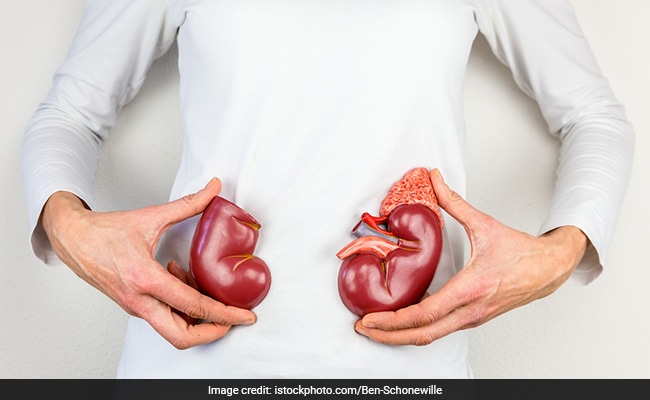Dialysis is a procedure which mechanically purifies your blood, thereby promoting a better quality of life.

Dialysis is done on the kidney to remove toxins from the body
HIGHLIGHTS
- Finance Minister Arun Jaitley went through dialysis at AIIMS
- Dialysis is done on the kidney to remove toxins from the body
- If dialysis is done well, the patient can have a good and long survival
Your kidneys are responsible for eliminating toxins and from a body by purifying your blood. When your kidneys fail to do so, dialysis is done. This procedure mechanically purifies your blood, thereby promoting a better quality of life. IN some cases, dialysis is good enough to suffice, but the kidney performs many other functions than just purifying the blood. This is when a kidney transplant is recommended. Last weekend, Finance Minister Arun Jaitley went through dialysis at AIIMS and returned home on Monday. He is now on a two-day leave from the hospital and will soon go through a kidney transplant surgery.

Arun Jaitley goes through kidney dialysis
Photo Credit: NDTV News
Also read: Chronic Kidney Diseases: Causes, Symptoms And Treatment
Last Thursday, Jaitley had tweeted: "I am being treated for kidney-related problems and certain infections that I have contracted. I am therefore currently working from controlled environment at home. The future course of my treatment would be determined by the doctors treating me."
I am being treated for kidney related problems & certain infections that I have contracted. I am therefore currently working from controlled environment at home. The future course of my treatment would be determined by the doctors treating me.
— Arun Jaitley (@arunjaitley) April 5, 2018
What is dialysis and why is it performed?
Nephrologist Dr Sanjiv Saxena explains why dialysis is done. He says, "Dialysis is done on the kidney to remove toxins from the body. This procedure is done to remove the toxins generated by the daily workload of the body which normally is excreted by the kidney. If the kidney fails, the toxins get accumulated. Some of the most common toxins include urea and acids. These do not get filtered when the kidney stops working. So dialysis removes them from the body through a mechanical procedure."
Also read: Which one is better - peritoneal dialysis or haemodialysis?
What is the procedure?
"In dialysis, there are two nodes. From one the patient's blood is taken; then there is a filter which clears the blood of toxins. And from the second tube, the purified blood is returned back to the body. This process goes on for an average of four hours, three times a week. This procedure makes survival a little easier for patients with kidney disease," says Dr Saxena.
Also read: When Does One Need A Kidney Transplant? All About Kidney Disease
Why is kidney transplant recommended?
Dr Saxena says that dialysis cannot replace some other important functions of the kidney. This is when a new kidney is needed. He said, "However, the kidney has many other functions in the body than just purifying the blood. It makes blood and vitamin D, which cannot be replaced by dialysis. In such a scenario, a kidney transplant is recommended. It is much easier and more convenient for the patient as he or she does not need to rush to the hospital every third day for dialysis."
Also read: Why does my father shiver during dialysis?
Why is a kidney transplant preferred over dialysis?
Dr. Saxena says that dialysis is also good enough to give a good quality of life. But it is not as convenient as a transplant. He said, "If dialysis is done well, the patient can have a good and long survival. But then again it is inconvenient for the patient. They have to come down to the hospital every alternative day and be on a machine for four hours each time. Then again the patient needs injections to make up for the blood. So this is time-taking. If the patient instead goes through a transplant once and for all, the pain of going through dialysis is eliminated. So if somebody is fit for a transplant and is getting a healthy donor as well, the person should go for a transplant. It makes the quality of life much better."
Also read: Is Alburel suitable for dialysis patient?
What is slow dialysis?
Sometimes, the dialysis may show improvements slowly. The urea and acidic levels may not droop as efficiently as expected. In that case, the patient is given a slow dialysis. This is when dialysis is done daily for a shorter period of time. Once the improvement shows, then dialysis can be done every alternate day.
(Dr Sanjiv Saxena is the Chairman of the department of renal sciences at Pushpawati Singhania Research Institute)
Disclaimer: This content including advice provides generic information only. It is in no way a substitute for qualified medical opinion. Always consult a specialist or your own doctor for more information. NDTV does not claim responsibility for this information.
DoctorNDTV is the one stop site for all your health needs providing the most credible health information, health news and tips with expert advice on healthy living, diet plans, informative videos etc. You can get the most relevant and accurate info you need about health problems like diabetes, cancer, pregnancy, HIV and AIDS, weight loss and many other lifestyle diseases. We have a panel of over 350 experts who help us develop content by giving their valuable inputs and bringing to us the latest in the world of healthcare.














